Liver Cancer Treatment In Kolkata
Get Clinically Successful Advanced Treatments for Liver Cancer From Experienced Cancer Doctors at Onco Cancer Centres, Kolkata
- Best-In-Class Services & Quality Treatments
- Same day Investigation + Treatment Initiation
- Dedicated, Advanced Oncology Facility
- Affordable Diagnostics
- Low-cost Advanced Treatment Options With Zero-cost EMI
BOOK AN APPOINTMENT
Please fill in your details to help us connect you with Onco Cancer Care Smart Clinic
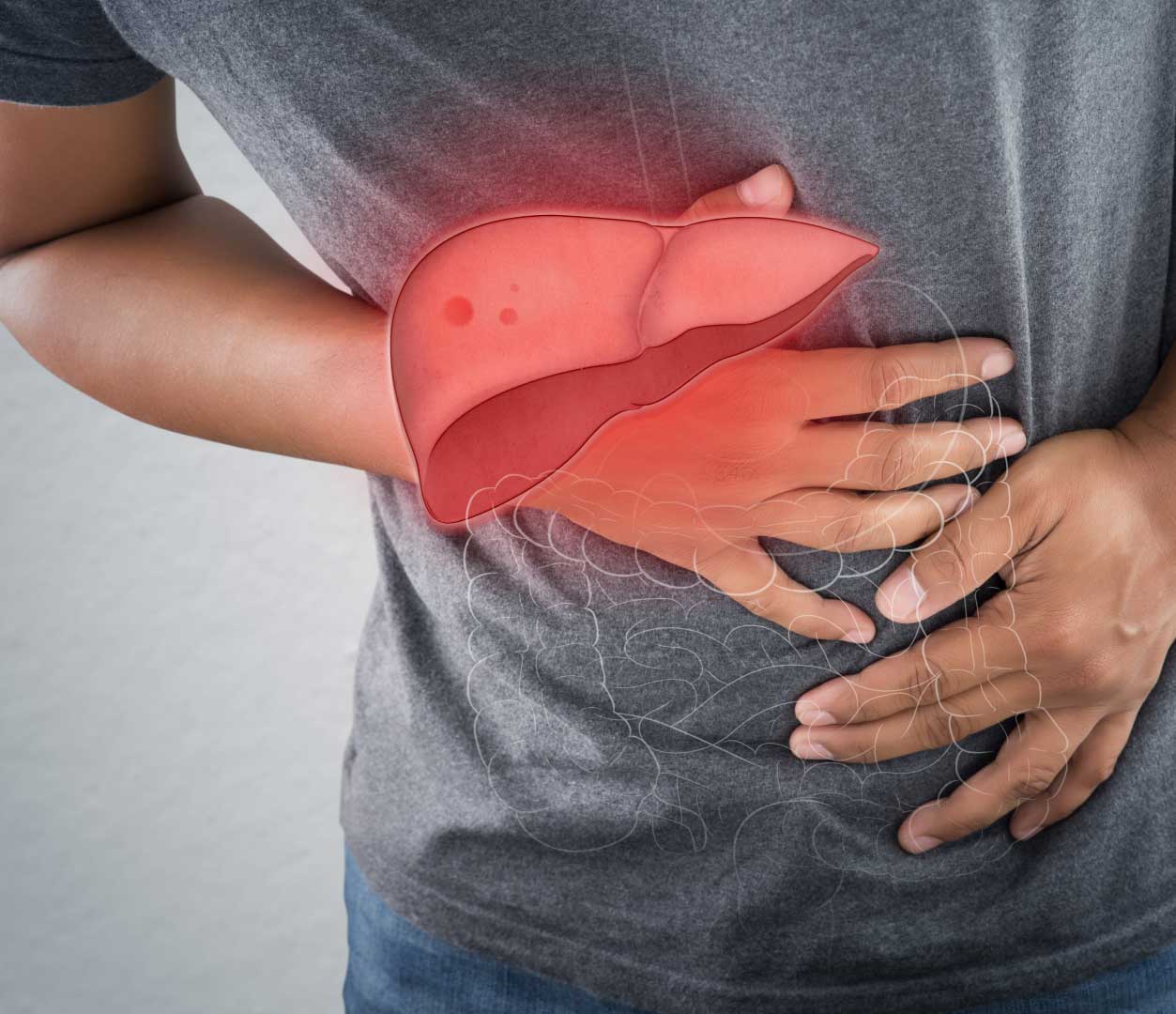

Rated 5/5 Reviews
What is Liver Cancer?
Liver cancer arises when cells in the liver begin to grow abnormally due to DNA mutations. If DNA mutates or changes, cells start to grow uncontrollably which is a characteristic of cancer cells. Primary liver cancers begin in the liver whereas secondary liver cancers are cancers that have affected other parts of the body and have spread to the liver. Hepatocellular carcinoma is most commonly seen. HCC and IHC (Intrahepatic cholangiocarcinoma ) affect men more than women and are diagnosed in people of age between 55 and 64.
Our Team of Top Liver Cancer Specialists in Kolkata

Dr. Rakesh Shankar Goud
MBBS, DNB-Radiation Oncology
Dr. Abid Ali Mirza
Surgical Oncologist
Dr. M A Suboor Shaheerose
Medical Oncologist
Dr. Amit Jotwani
CoFounder, CMO, Chief Oncologist
Dr. Shikhar Kumar
Consultant Medical Oncologist
Dr. Rakesh Shankar Goud
MBBS, DNB-Radiation Oncology
Dr. Abid Ali Mirza
Surgical Oncologist
Dr. M A Suboor Shaheerose
Medical Oncologist
Dr. Amit Jotwani
CoFounder, CMO, Chief Oncologist
Dr. Shikhar Kumar
Consultant Medical Oncologist
Dr. Rakesh Shankar Goud
MBBS, DNB-Radiation Oncology
Dr. Amit Jotwani
CoFounder,CMO,Chief Oncologist
MD (Radiotherapy), FHPRT, SBRT(Netherlands), AMPH

Dr. Shikhar Kumar
MD, DNB,DM – Medical oncology, ECMO
MD (Radiotherapy), FHPRT, SBRT(Netherlands), AMPH

Dr. Rakesh Shankar Goud
MBBS, DNB-Radiation Oncology
MD (Radiotherapy), FHPRT, SBRT(Netherlands), AMPH
Take Benefits of Our Onco Cancer Centres
- Multi-disciplinary care
- Hassle-free consultation
- Doctor consultation for more than 30 minutes
- No IP charges for chemotherapy
- Advanced technology like scalp cooling, leg massager at the center
- Tele-consultations available with oncologists across the country
- Second opinions offered free of cost
- Complementary diet plans
- Discharge process Less than 1 hour
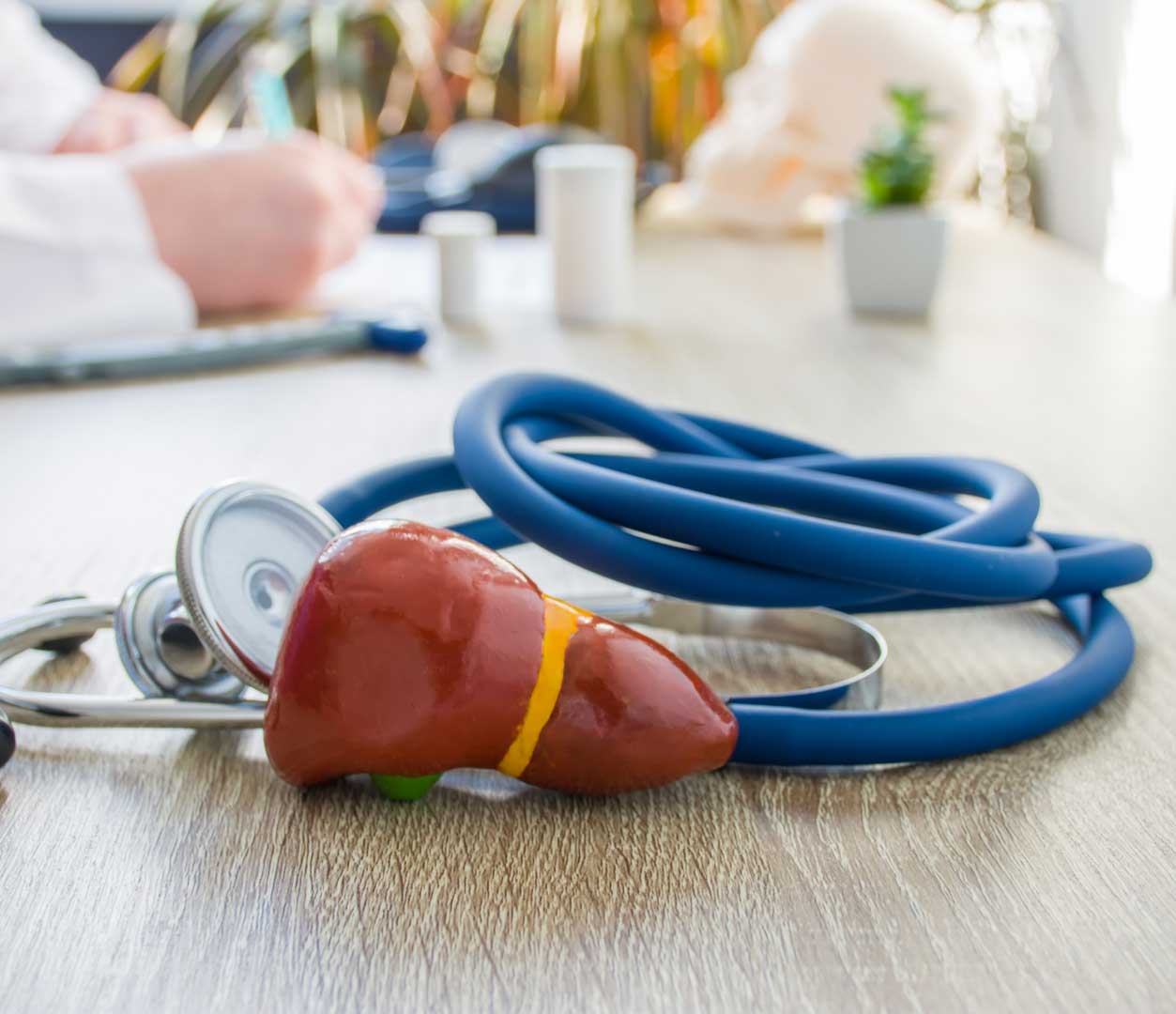
Signs and Symptoms of Liver Cancer

- Fatigue
- Jaundice (a diseased condition of liver that turns skin and eyes yellow)
- Unintentional weight loss
- Enlarged liver or spleen
- Nausea and vomiting
- Dark-coloured urine
- Lump below the rib cage or pain on the right side of the abdomen where liver is located
- Upper abdominal pain or swelling
- Lack of appetite
- Feeling full even after taking small meals
- White or chalky stools
Those who have or had hepatitis B and C infections and Liver cirrhosis can go for screenings. Discuss with your doctor about pros and cons of liver screening in healthy people before going for screening.
Consult an oncologist and get examined
Diagnostic Tests for Liver Cancer in Kolkata
Ultrasound (sonography): An ultrasound wand is moved around on the abdominal skin and this image can show tumours growing in the liver.
Computed Tomography (CT) scan: CT scan of the liver helps to get detailed images of the liver by using x-rays. CT scan of abdomen gives information about the size and location of tumours
Magnetic Resonance Imaging (MRI): This scan captures clear images of the body using radio waves. If tumours of the liver are cancerous and their spread to surrounding blood vessels and other body parts.
Angiogram: This test is done to examine the blood vessels and observes the blood vessel activity and also checks for blockages.
Liver biopsy: It is the most reliable way to confirm the liver cancer diagnosis.
Blood tests / Liver function tests: These tests are done to check the levels of serum bilirubin, serum albumin, proteins, liver enzymes, and other essential substances that can give information on liver health and functioning. These tests also check the levels of alpha-fetoprotein (AFP). High levels of this protein can be an indicator of liver cancer.
Get discount on Diagnostic tests
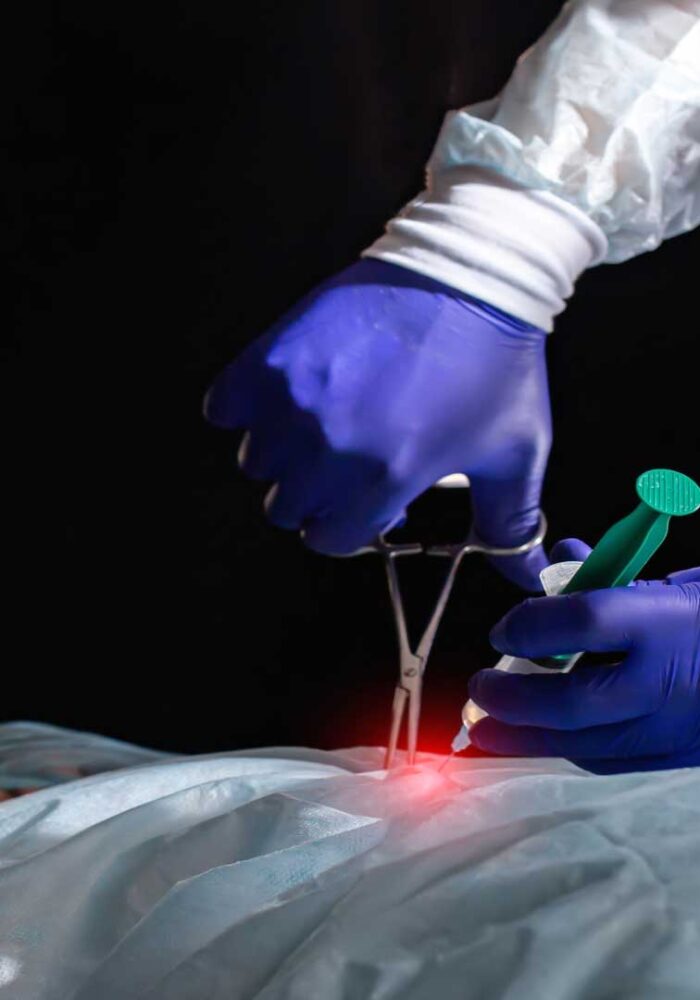
Advanced Procedures for Liver Cancer Treatment in Kolkata
Surgery for Liver Cancer: Surgery is suitable for early-stage liver cancer when tumours can be safely removed and the patient’s liver is functioning well.
Surgery can be done with either of the two procedures:
Liver transplant: If the entire liver is affected by cancer, then it will be removed and replaced with either a part or whole of the donor’s liver.
Liver resection: Also called Hepatectomy. This is a surgical procedure where only a cancer-affected part of the liver is removed. The rest of the liver takes over the functions of the liver.
If surgery is not possible, Doctor will recommend Thermal ablation, Chemotherapy, Radiation therapy, Targeted therapy, Immunotherapy, proton beam therapy to destroy the tumour.
Talk To Our Expert Oncologist
Cost of Liver Cancer Treatment in Kolkata
The cost of liver cancer treatment may vary depending on hospital facilities, medical expertise, pre-treatment costs (consultations, blood tests, and scans), type of treatment you are receiving, and post-treatment costs (follow-up consultation for periodic checks including tests, scans, rehabilitation, and medications).
To know the cost details for your liver cancer, you can call us at 8008575405 and we will give you an estimate.
Approximately, the cost of liver cancer treatment in Hyderabad ranges from INR 1,00,000 to INR 3,00,000.
Get Best Quote for Liver Cancer Treatment In Kolkata
Clinical Experience & Patient Stories
We are always pleased to hear positive feedback about Onco Cancer Centres. Here are some of the testimonials we’ve received from our Patients
Frequently Asked Questions on Liver Cancer Treatment In Kolkata
Most common cause is DNA mutations in the liver cells. Chronic hepatitis infections are also known to be the cause of liver cancer. Sometimes, people with no underlying diseases are also affected by liver cancer. So, it is unclear about what exactly causes primary liver cancer. But secondary liver cancers can occur from metastasis and spread of certain cancers of other organs to the liver. Cancers of colon, breast, lungs, etc can spread to the liver. However, some risk factors have been found that can increase the chances of getting primary liver cancers.
After being diagnosed with liver cancer, the next step your doctor does is staging. Staging refers to the process of figuring out the extent of the spread of cancer. A particular stage of liver cancer describes how severe it is and helps to determine the best treatment. Liver cancer is described as stage I to stage IV.
Stage I: Liver has only one small tumour and the cancer has not yet spread to nearby lymph nodes or distant organs. This is very early-stage liver cancer where the tumour has not affected the portal vein (main blood vessel of the liver) and mostly surgery will be recommended for this stage.
Stage II: Liver has one or more tumours grown to blood vessels but not spread to nearby lymph nodes or distant organs. This is also early-stage liver cancer and treatments like surgery, liver transplant, or radiofrequency ablation will be recommended.
Stage III: Liver has more than one large tumour and has grown into a large vein of the liver but has not yet spread to nearby lymph nodes or distant organs. This is intermediate-stage liver cancer and regional therapies such as transarterial chemoembolization will be recommended.
Stage IV: A single tumour or many tumours of any size have spread to nearby lymph nodes and to distant organs such as bones or lungs. This is advanced-stage liver cancer and targeted therapy will be preferred in certain cases.
Primary liver cancer that has originated in the liver or bile ducts of the liver can spread fastly. Among all types of liver cancer, cholangiocarcinoma and angiosarcoma are fast-growing whereas the most common type of liver cancer, hepatocellular carcinoma is slow-growing. If the liver is infected, cancer will grow faster. You can face symptoms like tiredness, jaundice, unintentional weight loss, enlarged liver or spleen, nausea and vomiting, dark-coloured urine, lump below the rib cage, upper abdominal pain or swelling, lack of appetite, white or chalky stools, etc while it is spreading.
Once you are diagnosed with liver cancer, a panel of doctors together will prepare the best treatment plan for you. During this time you will be given with certain medications to deal with cancer symptoms and to make you ready to receive treatments. After setting up a treatment plan, doctors will discuss with you the expected outcome and possible side effects. Later you can make an informed decision. If you are not confident with the designed treatment plan, you can go for a second opinion. Otherwise, you can start treatment as scheduled by your doctor.
Liver cancer may or may not show early signs. But there are some considerable symptoms such as enlarged liver or spleen, unintentional weight loss, lack of appetite, nausea or vomiting, abdominal pain, swelling of the abdomen, and discolouration of skin and eyes to yellow. If you have or ever had liver infections or liver cirrhosis, it is advised to go for testing in case of experiencing the above symptoms.
Traditional chemotherapy is not an option to cure liver cancer but it helped many liver cancer patients live longer. There is a different form of chemotherapy namely hepatic artery infusion (HAI) that can effectively treat liver cancer. In this treatment, chemo drugs are placed in the hepatic artery (main blood vessel that supplies blood to the liver) through catheter insertion that allows drugs to reach the tumour. Some liver cancer patients can’t tolerate and feel uncomfortable to receive this type of treatment.
Patients with early-stage liver cancer have higher chances to increase their survival rate by up to 5 years or longer. In the case of advanced or metastatic liver cancers, patients can still expect a 5-year survival rate due to the excellence of modern treatments. Adapting a healthy lifestyle along with the best treatments for your liver cancer can also improve your quality of life and life expectancy too.
Long-term liver infections with the hepatitis B virus or hepatitis C virus are known to be the most common causes of liver cancer. As these infections lead to liver cirrhosis which in turn develops as liver cancer. This risk is even higher in alcoholics. Hepatitis vaccines and treatments are available for hepatitis infections to protect yourself from liver damage. These infections can also spread from person to person through unprotected sex, use of contaminated needles, and can also spread from parents (if infected) to children during childbirth. Other potential causes of liver cancer include primary biliary cirrhosis (bile duct damage), avid alcohol or tobacco consumption, obesity, type 2 diabetes, and other liver diseases.
Almost all symptoms are similar in men and in women such as extreme tiredness, jaundice, unintentional weight loss, enlarged liver or spleen, nausea and vomiting, dark-coloured urine, presence of a lump below the rib cage, pain on the right side of the abdomen at the site of the liver, abdominal pain or swelling, lack of appetite or feeling full even after taking small meals, and white chalky stools. These symptoms do not necessarily mean liver cancer as these can also be accompanied by other illnesses. If you experience any of these symptoms, consult your doctor and get your liver tested.
Liver is one of the most important organs in the body responsible for multiple functions including secreting bile for food digestion, producing energy that your body needs, processing and storing nutrients for energy, collecting and filtering blood that circulates from the intestines, producing clotting factors that help the blood to clot in certain situations, etc. So, when you get liver cancer, all these functions will be disturbed and you may face symptoms like weight loss, fatigue, and more (see above).
Pain is a common symptom of liver cancer. It usually occurs in the right abdominal area mainly below the right side of the rib cage and near the right shoulder. Sometimes this pain can radiate to the back. Pain from liver cancer may be associated with tumours in the liver, enlarged liver that puts pressure on the nerves under the diaphragm, and liver diseases like cirrhosis. Inform your doctor about the location and intensity of the pain you are experiencing and get the proper treatment for the cause.
Complete remission from liver cancer depends upon its stage, patient’s health status and age. Early-stage liver cancer can be cured and prevented from recurrence. Though advanced-stage liver cancer is difficult to cure, there are many advanced treatment options available to treat. Successful liver transplants can completely cure early-stage liver cancer, but every patient is not suitable to have a liver transplant.
Your doctor will suggest required tests before starting treatment including imaging scans, blood tests, liver function tests, and biopsy if needed. In maximum cases, there won’t be a need for further testing. But if you are not confident with the current treatment plan, you can go for a second opinion from a multidisciplinary panel of expert oncologists.
Your doctor will discuss with you pre-treatment preparation. If you are already taking any treatment or medication for any other diseases, the doctor might ask you to stop certain medications. Ask your doctor to provide a list of things that you should stop or take before starting the treatment.
Related Blogs
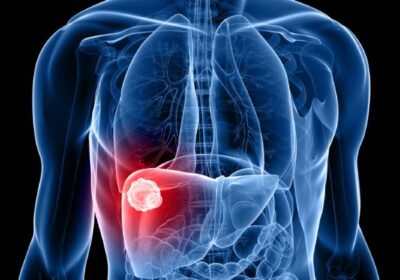
What Are The Treatment Options for Liver Cancer?
The liver is the largest internal organ of the human body and plays a crucial role in detoxification…
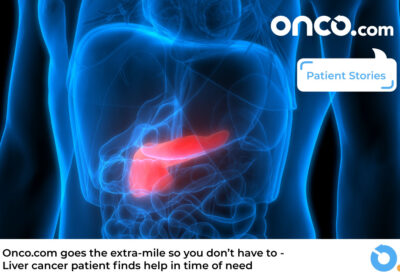
Onco.com goes the extra-mile so you don’t have to – Liver cancer patient finds help in time of need
It is not always the familiar story: spot the symptoms and you have cured the disease. For liver cancer…
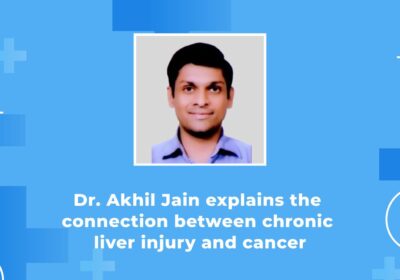
“Injury to the Liver is Injury to the Body”, says Dr. Akhil Jain | Onco.com Expert Article
Dr. Akhil Jain is a senior medical oncologist and an Onco.com panel expert. He did his postdoctorate…

